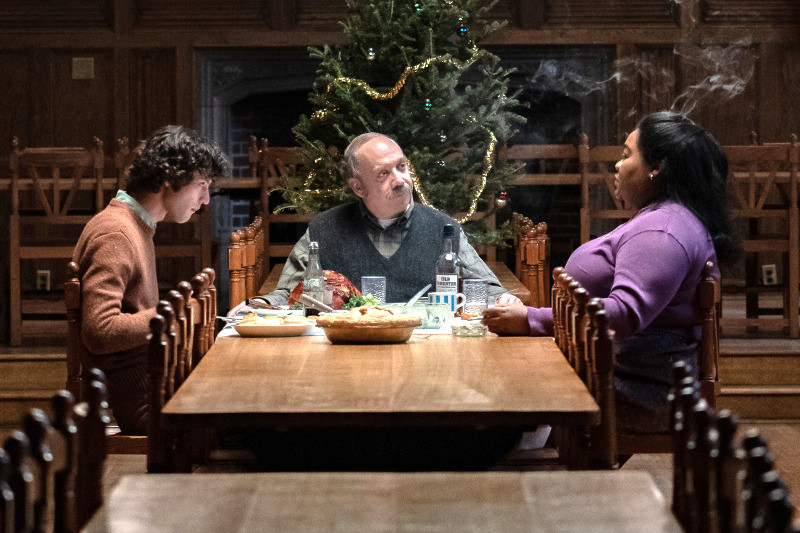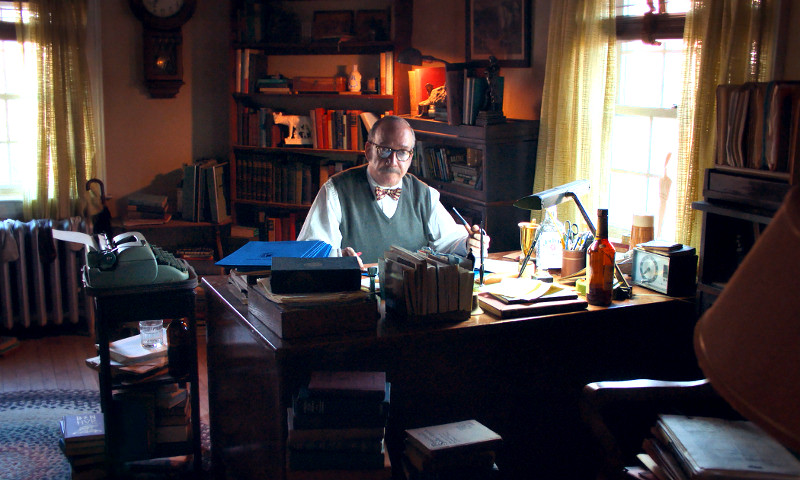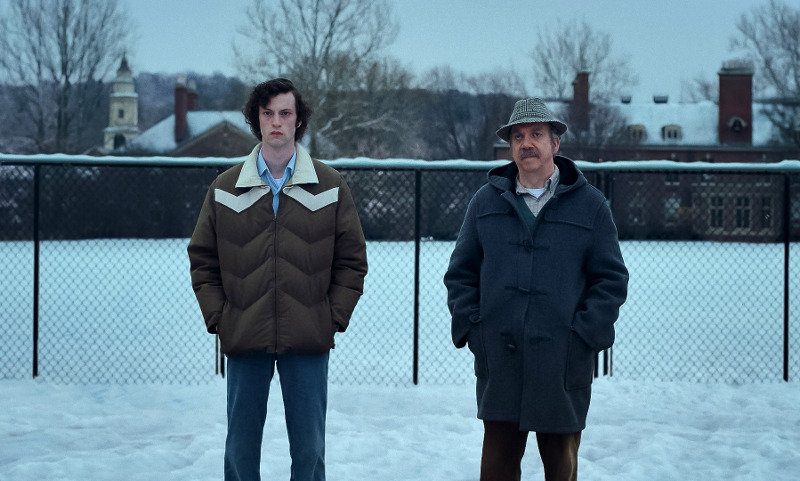
“There are certain movies that you hang out with the characters so much that they actually become your friends. Those movies are usually quite long, because it actually takes that long of a time to get past a movie character where you actually feel that you know the person and you like them.”
That now-famous quote from director Quentin Tarantino spawned the expression “hang out movie.” If you like “hang out movies,” director Alexander Payne‘s latest, The Holdovers, written by David Hemingson (his feature-film debut) and presented by Focus Features, will delight you.
Our setting is a New England prep school during its two-week holiday break at year-end 1970. In classic hang-out mode, the story unfolds slowly, giving only broad information about each character. The Holdovers begins like many canonical holiday redemption movies (A Christmas Carol and variants), weighted with forced emotions and cliches in the name of holiday cheer. But as these tropes are ultimately reversed, the joys of the film emerge. Alexander Payne confronts us with a story of despair, sacrifice, the search for connection, and unlikely kinships between teacher and student.

As the cantankerous, peevish prep-school instructor Paul Hunham tasked with babysitting a small group of students stuck on campus over the Christmas holidays, Paul Giamatti brings another career-defining performance to the screen. His versatility as a dramatic and comedic actor has few peers. Few actors take as many risks, fewer as successfully. He is sublime in this current role and clearly enjoying his reunion with Payne almost twenty years after portraying the fractured Miles (an unhappy English teacher!) in the dramedy Sideways (2004).

Dominic Sessa, a teen actor without prior film experience, brings a natural blend of male teenaged angst, awkwardness, and snark to Angus Tully, the last emotionally charred student left on campus. Sessa communicates Angus’ emotional pain with realism, the perfect antidote to his teacher’s (Giamatti) petty, tyrannical behavior. The school’s head cook, who volunteers to stay on campus while mourning the loss of her only son in the Vietnam War, is skillfully played by Da’Vine Joy Randolph (Dolomite is My Name and Only Murders in the Building). She completes this trio of leading characters with the right amount of humor, wisdom, and heartache.
Visually, The Holdovers creates a sense of time-traveled reality from the onset of credits rolling with ersatz archival pops and cracks in the sound, vintage graphics for the R rating, and the desaturated colors in each frame. Payne has assembled an immersive world encompassing the technology of the age to deliver the story, including cinematographer Eigil Bryld’s use of vintage camera lenses that bring authenticity to every frame.
Hemingson’s script deftly weaves social/political themes of racial and economic disparity (think Vietnam draft deferments), class entitlements, and the privileges the primarily white students enjoy as members of the elite private boarding school community. Every character has an underside of pain, no matter their privilege. From warehoused children in gilded prep-school cages to the bullying for any hetero infraction or being seen as “other.” We meet a Korean holdover student too far from home or a student whose house is being “renovated” and told to stay away. Hemingson’s script and Payne’s meticulous direction combine these pointed details to lead us to a complete portrait of a wounded yet bracingly loving ensemble that supports a satisfying “hang out” movie experience.
With little warning, the movie smoothly turns, in its third act, to trenchant secrets revealed and events that propel a deeper understanding of the protagonists’ past and possible futures. In many ways, The Holdover is a throwback to a time when films brought a natural pacing and grittiness without fear of dark emotional places. There’s no pandering to feel-good sentiments in this film. In a satisfying return to form, Alexander Payne’s rich history of bringing flawed and fascinating characters to the screen carries forth in The Holdover. Pull up a chair. Class is in session.
Stephan Koplowitz is a director/choreographer and the author of On Site-Methods for Site-Specific Performance Creation by day. By night, he’s an avid cinephile.
